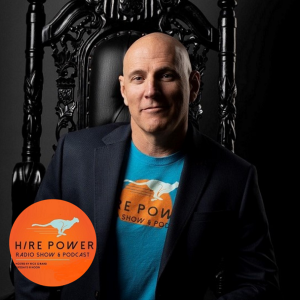
Best Building A Cultural Document Tips You Will Hear This Year! with Jeff Wald of WorkMarket
 2020-07-09
2020-07-09
Not having a clearly defined corporate culture document is a recipe for failure. Why? The culture document is a business plan for how your people are expected to behave, interact and resolve conflict. It is your saving grace when things go sideways! You must provide a clear and accurate picture to everyone you interview about the good, the bad and the ugly of the organization and the expectations of behaviors that result in success in their role.
Our guest today: Jeff Wald, CoFounder & President of WorkMarket
Jeff Wald is the Founder of Work Market, an enterprise software platform that enables companies to manage freelancers (recently acquired by ADP). He also founded several other technology companies, including Spinback, a social sharing platform (purchased by salesforce.com).
Jeff is an active angel investor and startup advisor, as well as serving on numerous public and private Boards of Directors. He also formerly served as an officer in the Auxiliary Unit of the New York Police Department. Jeff is the author of The Birthday Rules and The End of Jobs: The Rise of On-Demand Workers and Agile Corporations. Jeff frequently speaks at conferences and in media on startups and labor issues. He is an expert at building cultures that thrive.
Today we are discussing:
- Why it is critical to have a culture document
- The three steps to building your own culture doc
Why does a company need to have a culture document?
- Not very clear about the culture of the company
- First stages you hire the people that you know
- First months/years are the most difficult
- Very difficult to make sure you work well together
- When you exhaust your talent pool/first level network
- Then you branch out
Do people really understand the nature of being at a startup?
- Terrible hire / fit amazing person, really a vanity hire
- Understand how to be resource constrained
- Amazing person, disastrous fit
Why is this important to the company
- Resource allocation problem
- Few dollars, time
- End up giving a longer rope so the failure impact is that much greater
- Cost the company Millions of dollars- spending power, budget
How do we do it?
- You should not hire quick at the executive level
- They need time to succeed
Creating a culture Document
- Start with your values
- 6-8 core values of the company
- Different to everyone
- Be clear with what it is you believe
- Who you are (mission statement), where you are going (North Star) & why you are there (purpose)
- Needs to be super clear to EVERYONE in the organization (repeat it again and again...when people start complaining about hearing it too often, you are halfway there!)
- Behaviors & Policies
- Behaviors to support the values
- How we run our business
- How you hold meetings, how you promote, how you do business with clients, how you communicate, how you make decisions, your social events, etc., all have to support your values, otherwise what's the point of having values?
- People
- What are the behaviors that everyone at the company should strive for? Do we want people constantly learning and growing, or just doing their job well and going home? Are they questioning things, or just rowing when told to row? How do they disagree with a decision?
- What do we expect from our managers? Are the efficiency drivers or coaches? Are they transparent? How do they give feedback?
Key Takeaways:
- A culture document brings clarity to you and your team
- Repeat it again and again, because your team has to know it
- Use the document as hiring and promotion guide
Guest Contacts:
Book: The End of Jobs: The Rise of On-Demand Workers and Agile Corporations (Amazon)
More Episodes
Create your
podcast in
minutes
- Full-featured podcast site
- Unlimited storage and bandwidth
- Comprehensive podcast stats
- Distribute to Apple Podcasts, Spotify, and more
- Make money with your podcast
It is Free
- Privacy Policy
- Cookie Policy
- Terms of Use
- Consent Preferences
- Copyright © 2015-2024 Podbean.com






